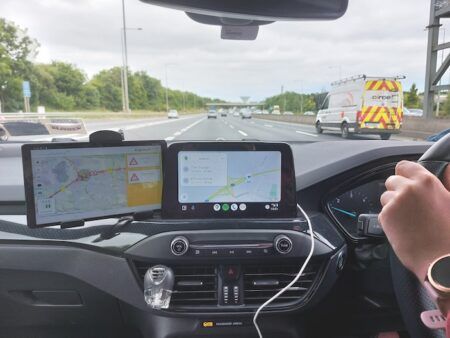What happens when speed and red-light enforcement cameras are first introduced? In most major cities in the developed world it is becoming difficult to remember a time before traffic enforcement cameras of some type. And in most locations such systems were installed in a piecemeal fashion, making it difficult to assess overall effectiveness. However, in many cities in Turkey, traffic enforcement cameras are new, which gives authorities a unique opportunity to assess their overall effectiveness, as ‘before’ and ‘after’ data can be generated around large-scale deployments.
One such deployment has taken place in the Turkish city of Ordu (above), a city of some 200,000 inhabitants on the northern Black Sea coast. Here a complete network of red-light and speed enforcement cameras, supplied by Jenoptik, has recently been installed, and the benefits are clear.
“Before we installed the system there were three fatal accidents on average per month in Ordu,” says Kadir Karakaya of Poltes Robot, the company responsible for the roll out, patnering with Jenoptik (Kadir is pictured on the right, with his brother and business partner Cenk Karakaya). “Since we started our speed and red-light enforcement there have been no fatal accidents caused by private drivers speeding or jumping red lights. People in Turkey are really starting to understand how a reduction in speed will help to keep the accident levels really low. We are very proud to say that with this system we have saved lives. That’s the most important thing. People feel safer than before. We searched the market for solutions and we found Jenoptik were the best for speed and red-light enforcement. They have a big history with this technology,” says Karakaya. The installation was completed in December 2015 and has now been up and running for nearly six months.
The Turkish market is now a big growth area for advanced traffic management as more and more cities demand smart technologies to enable faster economic growth. “Traffic tenders in Turkey have changed a little in the last two years,” confirms Karakaya. “They want more and more intelligent traffic solutions for the smart city projects.”
The Ordu project – the biggest one so far in Turkey – required Poltes Robot to create a new traffic control center, which monitors meteorological information, controls VMS and traffic lights, implements variable speed limits and monitors arrival time information systems for public transit, as well as housing the speed and red-light enforcement back office.
“What is interesting is that, in the last 10 years, road quality has really become higher in Turkey. It was a major focus for the government to improve infrastructure and lay new asphalt,” says Karakaya. “Of course, the other important point was to reduce traffic accidents – it is not enough to create good streets if you don’t also look at reducing accident numbers. They have to be lower than before, otherwise it would make no sense to improve the streets.” Which is why, of course, speed and red-light enforcement has become so important.
However, the installment of the system was not without its controversy. The perennial concern that traffic enforcement cameras are simply there to make money was raised. But Karakaya is convinced that such arguments have now been put to rest: “In the beginning local people were afraid and said, ‘Is it only to make money?’ But it isn’t, the people, especially women, are really finding this new system good because there are now no street races. It changed, really, the culture of driving. Before this project, although the police performed mobile checks, there were no stationary enforcement cameras – so it was a new thing in Turkey. But now people accept it and they are really, in my opinion, looking forward to our new projects. After we showed them how the accident rates are coming down, people have thought about it and said, ‘OK, it makes sense. We want more of them.'”
Pictured: Mulitple TraffiStar SR590 units of the same type as installed in Ordu
Click here for a video with more information about the Ordu project




